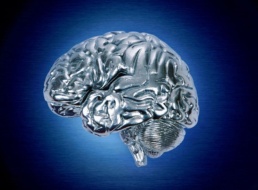-

Finding a Neurofeedback Trainer
Posted on October 5, 2010 by Catherine Boyer in NeurOptimal®, New York NeurofeedbackIf you’re having trouble finding a neurofeedback trainer near you, it’s not too surprising, especially if you don’t live in an urban area. There are probably less than 10,000 of us in the world. That number is growing as neurofeedback becomes better known. More people are drawn to becoming trainers, sometimes out of their own […]
Comments Off on Finding a Neurofeedback Trainer Continue Reading... -

The Brain and Neuroplasticity
Posted on September 10, 2010 by Catherine Boyer in New York Neurofeedback, The BrainNorman Doidge, author of The Brain That Changes Itself, believes that the idea of neuroplasticity – the brain’s ability to change itself – is the most revolutionary new understanding of the brain in 400 years. The brain is able to change how it functions and to change its own structure. We are not limited to the […]
Comments Off on The Brain and Neuroplasticity Continue Reading... -

Why Relaxing Is So Hard
Posted on August 20, 2010 by Catherine Boyer in New York Neurofeedback, Stress managementThis interesting Wall Street Journal article, Why Relaxing is Hard Work, talks about how our plugged in way of life makes it hard to “power down,” even on vacations. I’m hearing about this a lot from my counseling and neurofeedback clients. 24/7 availability to work and, for some, the desire to have a clean inbox – […]
Comments Off on Why Relaxing Is So Hard Continue Reading... -

Meditation and Neurofeedback
Posted on July 2, 2010 by Catherine Boyer in NeurOptimal®, New York Neurofeedback, Stress managementMeditation reduces the experience of pain, a University of Manchester study confirms, as reported in the journal Pain. Because meditation builds the ability to stay in the present moment, meditators anticipate pain less and are less bothered by it. This makes sense to me, and perhaps on a physical level as well. If we’re not worrying […]
2 Comments. Continue Reading... -

Your Brain Needs a Break
Posted on June 21, 2010 by Catherine Boyer in New York Neurofeedback, The BrainThis is an interesting recent article in the New York Times about the brain’s need for downtime. Many of us now fill all those small moments waiting… For an elevator On line in the supermarket On a bus or subway Integrate learning Remember information Have new ideas …with activities on our smartphones. The article suggests that […]
1 Comment. Continue Reading... -

How Can Neurofeedback Help with So Many Things?
Posted on May 20, 2010 by Catherine Boyer in NeurOptimal®, New York NeurofeedbackIt’s a great question, and one that makes some people hold back from trying neurofeedback. How can it be that good? The answer is that neurofeedback works directly with the central nervous system (the brain and the spinal cord). I think of the CNS as the captain of the ship, central to all the ways […]
Comments Off on How Can Neurofeedback Help with So Many Things? Continue Reading... -

Neurofeedback – What’s Possible?
Posted on April 23, 2010 by Catherine Boyer in Mental Wellness, New York Neurofeedback, Sleep, Stress management, What to expectProbably more than you think. Here’s a personal example. I first heard of neurofeedback in relationship to my own sleep problems. Sleep improved quite quickly, but then I also noticed other things were getting better. My husband was also reporting positive changes that he saw in me. I asked him what he’d noticed and he […]
2 Comments. Continue Reading... -

Neurofeedback and Peak Performance
Posted on March 23, 2010 by Catherine Boyer in Mental Wellness, NeurOptimal®, New York Neurofeedback, Peak performanceHow can neurofeedback help you improve your game? Here are three of the ways: Stay in the moment (this means being in the “flow” state) Reduce performance anxiety and use that energy for your game Be able to let go of mistakes and refocus quickly Of course, this doesn’t just apply to sports; but here’s […]
Comments Off on Neurofeedback and Peak Performance Continue Reading... -

Neurofeedback – Will I Need to Come Back for Tuneups?
Posted on February 18, 2010 by Catherine Boyer in Mental Wellness, NeurOptimal®, New York NeurofeedbackPeople often ask: Will I need to come back for neurofeedback tuneups? Most people don’t. You’re likely to come in with a list of changes you’d like to see happen – better sleep, more peace of mind, less stress, better focus, happier mood, whatever your list is – and stay until you feel happy with […]
Comments Off on Neurofeedback – Will I Need to Come Back for Tuneups? Continue Reading... -

Neurofeedback – What Kind of Changes Can Happen?
Posted on January 21, 2010 by Catherine Boyer in Mental Wellness, NeurOptimal®, New York Neurofeedback, Peak performance, Sleep, Stress managementBelow is a sampling of changes my clients have told me about just in the last two weeks. Sleeping through the night instead of waking up two or three times Having more fun being with their children because of being really with them instead of distracted Worrying less For the first time in this person’s […]
Comments Off on Neurofeedback – What Kind of Changes Can Happen? Continue Reading...

